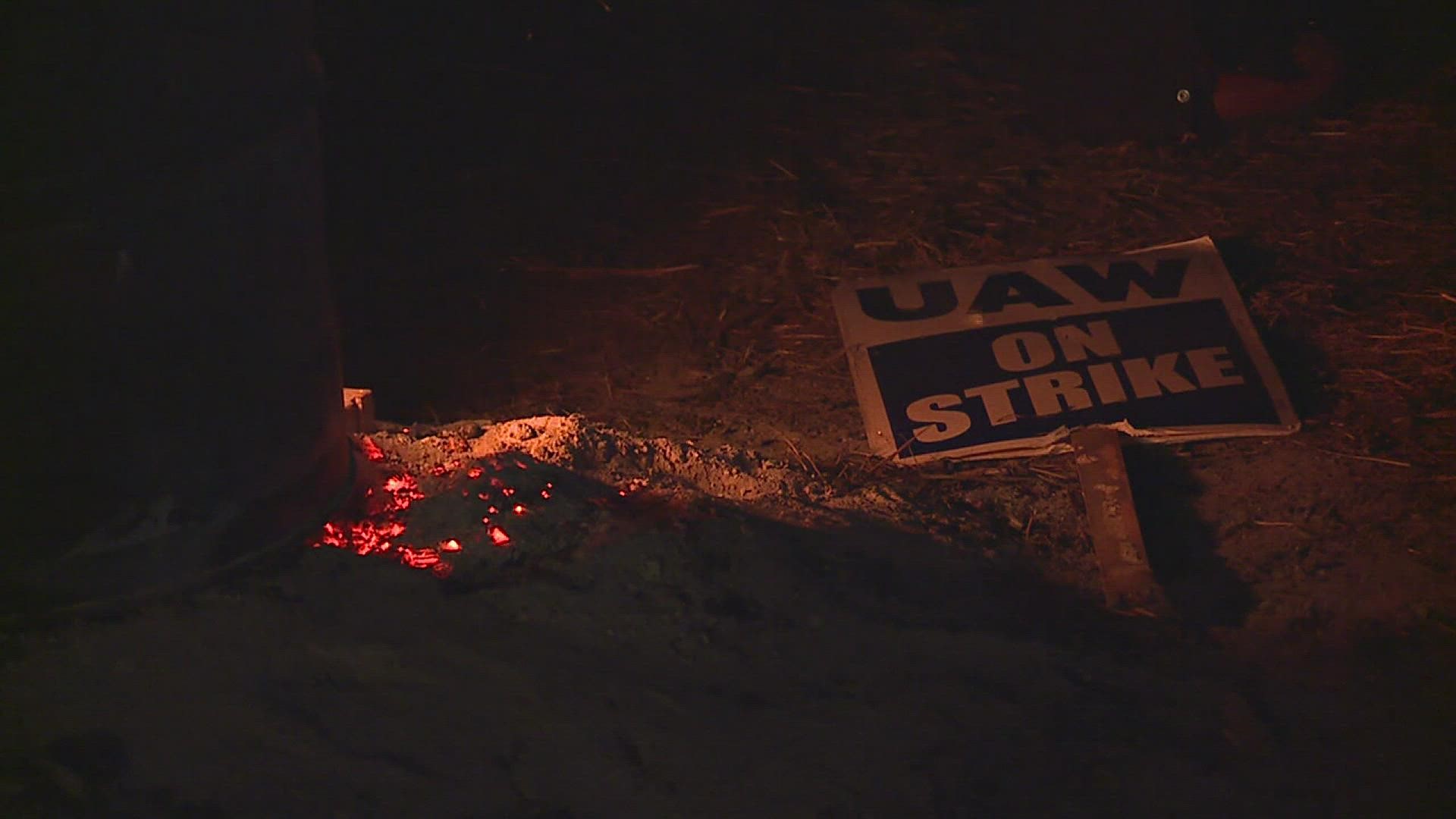MOLINE, Ill — After 35 days, John Deere members of the United Auto Workers Union packed up the picket lines and headed back to work.
The strike concluded on Wednesday, Nov. 17, after 61% of members voted to accept the company's second tentative contract offer, with 'minor modifications' to employees' productivity-based incentive program, CIPP.
Employees were already seen walking back into facilities on Thurs. morning.
But as quickly as the strike ended, the fallout could last much longer. One labor expert speculates that many lessons can be learned, for both other unions, and other companies.
"It definitely does provide an example to other workers that if you can stand together and you've done your homework and you believe that the company has the ability to pay, that you absolutely can get your share of the value that you're creating for the company," said Michael Childers, a professor of labor education at the University of Wisconsin-Madison.
After three different agreement votes, UAW members finally ended up with a contract that included an $8.5k ratification bonus, a 5% increase on CIPP caps, an immediate 10% raise, along with two 5% raises to follow throughout the lifetime of the contract, increased retirement benefits and more.
"They didn't get everything they wanted," admitted Childers. "But this offer has improved significantly through the willingness of workers to push back and say, 'No, you need to do better.' And frankly, it took them withholding their labor, but they were able to get the company to step up and do better."
The impact goes even further, he says, considering the company in question is Deere - arguably the Quad Cities' strongest economic and philanthropic power.
"I think in the local market, these are jobs that set the benchmark in their local area and everyone will basically be looking at how do I recruit and retain employees versus what the market rates are in my community," said Childers.
It's something the Quad Cities Chamber of Commerce couldn't agree more with. President and CEO Paul Rumler gave a statement to News 8, saying:
“John Deere is important to our region for a variety of reasons including growing our economy as well as providing great jobs that help build families and strengthen our community. We appreciate that John Deere and the UAW were able to come to a positive resolution.”
"Our community, in some ways, is built totally around John Deere," said David Buller, CEO of the Quad-City Area Labor-Management Council.
He said that when the burn barrels started to be extinguished on Wed. night, it was almost as if the entire Quad Cities breathed a collective sigh of relief.
"It affects so many more employees than the 10,000 that were on strike," said Buller. "Every business that John Deere uses to manufacture parts is affected. I don't think much moves here in the Quad Cities without Deere & Company."
Buller called the relationship between Deere and the UAW as a symbiotic one, noting that each entity could not exist without the other, as employer and laborer. It's that harmony, and continued, decades-long relationship that he attributes much of the area's success and development to.
"That's the number one reason why it's so important that there's harmony," he said. "It attracts those new businesses and has an impact on other businesses, both union and non-union, that Deere is contracting with."
Moving forward, he anticipates the strike to 'set the tone' for future contract negotiations and, if necessary, future work stoppages around the region.
"In a broader sense, entities are also going to have to carefully consider before they make regressive and concessionary offers to their workforce, from what happened at Deere," said Childers. "Workers are looking for a fair deal and do feel empowered in the current labor market."
According to Childers, that was where many of Deere's mistakes began to stem from, over the course of two failed contract agreement votes. After employees worked through a pandemic, often putting in multiple six-day work weeks with hours of overtime, for the company to make record profits, he says Deere's first contract offer struck a nerve.
"For companies, I think (this strike) might also have significant cues because I think in several ways John Deere misread the situation, especially based on the broader labor market in the United States right now and the impacts of Covid," said Childers. "This was not a great time, especially in how they were situated with record profits, to be looking for further concessions from their workers. And I think that's a lesson that will be absorbed by other companies going into collective bargaining in the near future."
Setting a new standard for negotiations in the region, thanks to a 35-day strike between a regional heavyweight, and the thousands of community members that power it.

